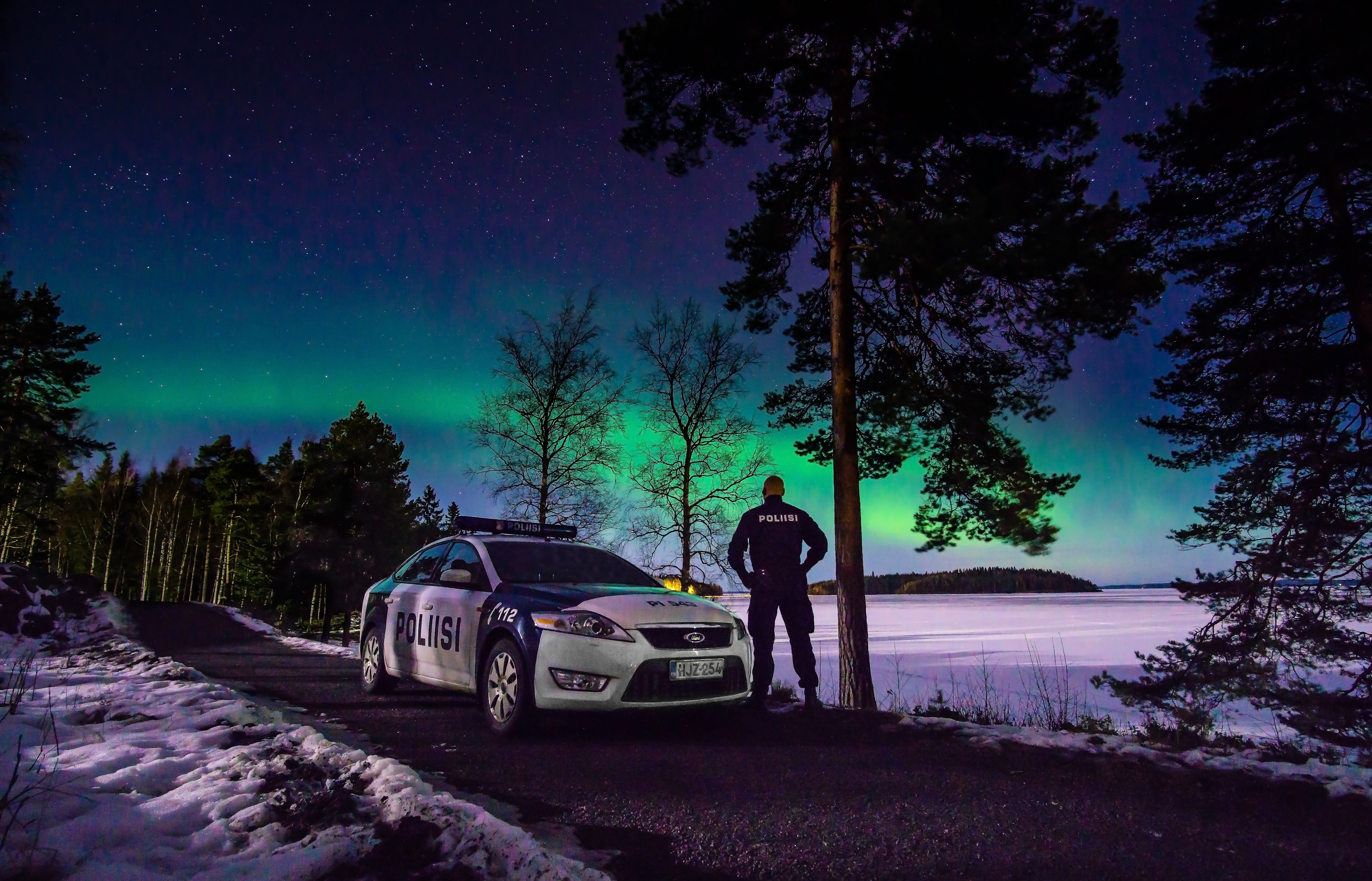Breadcrumb
Navigation Menu
Tietoa matkailijalle alku en
Information for international arrivals
This information is designed for people who are planning a trip to Finland and want to know about immigration rules, what travel documentation is required and how to deal with Finnish police.
The Police of Finland is a reliable, trustworthy and unimpeachable institution. Many of our police officers are multilingual, and all speak at least Finnish, Swedish and English. An interpreter can be called if necessary.
Arrival and entry
The documents you need to enter Finland depend on your nationality.
Arrivals from other Nordic countries
There is considerable freedom of movement between the Nordic countries (Finland, Sweden, Norway, Denmark and Iceland), and Nordic nationals generally do not need any particular permits to reside in another Nordic country as long as they can prove their identity and nationality in a reliable way.
Please note that international travel is currently subject to restrictions due to the coronavirus pandemic and you should always check the latest restrictions at your destination before you travel.
EU citizens
Citizens of EU member states, Switzerland and Liechtenstein who plan to stay in Finland for less than three (3) months only need a valid travel document, i.e. a passport or an identity card, to enter the country.
Anyone planning to stay longer needs to register with the Finnish Immigration Service.
Please note that international travel is currently subject to restrictions due to the coronavirus pandemic and you should always check the latest restrictions at your destination before you travel.
Third-country nationals
Nationals of third countries, i.e. all countries other than those mentioned above, always need a valid passport to enter Finland. For short-term stays you also need a visa, unless you are a national of a visa-exempt country. If you intend to stay in Finland for more than 90 days, you need a residence permit.
For more information about the travel documents required to enter Finland, visit the website of the Finnish Ministry for Foreign Affairs.
Please note that international travel is currently subject to restrictions due to the coronavirus pandemic and you should always check the latest restrictions at your destination before you travel.
Applying for a visa
If you need a visa, you can apply for one through the nearest Finnish mission or visa application centre in your country of origin. Visas to Finland are issued by the Finnish Ministry for Foreign Affairs.
The police can extend the validity of your visa if you are unable to leave the country due to circumstances that are beyond your control or for humanitarian or compelling personal reasons. The police also has the power to cancel or void your visa. For more information, see ‘Visa extension’.
Arriving in Finland by car
If you are arriving in Finland by car between 1 November and 31 March, remember that your car must have winter tyres if the weather is wintry and the roads slippery. Please check the weather forecast before you travel. Finland stretches a long distance from south to north, and weather conditions can vary considerably. While the weather can be warm and summery in the south, the roads in Lapland can still be icy or covered with snow.
Make sure not to bring a radar detector with you to Finland. Using a radar detector or having one in a motor vehicle or a trailer on public roads is illegal in Finland. If you are found to be in possession of a radar detector, you may be fined by the police and have the device confiscated. This can affect you chances of qualifying for a visa. Combined with other traffic violations, you could even face a driving ban.
Forbidden articles and weapons
Weapons and other dangerous articles cannot be brought to Finland without permission. Knuckledusters, flick knives, gas pistols, spring-loaded batons and concealed blades are classified as dangerous articles in Finland, and having one in your possession is a criminal offence. For more information about prohibited articles and substances, visit the website of Finnish Customs.
If you are a competitive target shooter or hunter, you can bring your gun to Finland. The permits and documents that are needed depend on the country from which you are bringing the gun. Always apply for the necessary permits in your country of origin before you travel. Remember that you also need an invitation from the sporting event or hunt in which you are taking part in Finland. For more information about permits and licences for firearms, see ‘Firearms licences’.
Exploring Finland
Finnish freedom-to-roam laws give everyone – residents and visitor alike – extensive rights to explore and enjoy the natural environment. The freedom to roam is regulated by a number of laws and subject to several rules.
The most important rules are listed below:
Tietoa matkailijalle haitari en
- walking, skiing and cycling anywhere except in private gardens and land set aside for a special purpose such as growing crops
- staying or setting up camp temporarily anywhere except in the immediate vicinity of people’s homes
- picking wild berries, mushrooms and flowers
- fishing with a rod and line (including ice fishing)
- rowing, sailing or using a motorboat on waterways as well as walking and skiing on frozen lakes, rivers and the sea
- disturbing others or damaging property or the environment
- disturbing breeding birds or game animals
- cutting down or damaging living trees
- collecting moss, lichen, soil or wood
- disturbing the privacy of people’s homes
- littering
- driving motor vehicles off-road without the landowner’s permission
- fishing or hunting without the relevant permits
- lighting open fires without the landowner’s permission
Tietoa matkailijalle loppu en
Visiting the border zone between Finland and Russia
If you want to visit the border zone between Finland and Russia, you need a special permit. The border zone is a strip of land approximately three kilometres wide, and unauthorised entry into the zone is forbidden. The police has the right to ask to see your border zone permit and the power to cancel it.
Entering the border zone without authorisation carries a penalty. Crossing the border unlawfully is a criminal offence.
Driving in Finland
If you intend to drive in Finland, please familiarise yourself with the Finnish Road Traffic Act. Make sure that your vehicle satisfies both Finnish and European roadworthiness regulations.
You can drive in Finland as long as your driving licence was issued in a country that is recognised by Finland or with which Finland has a diplomatic relationship.
Driving under the influence of alcohol or drugs is forbidden in Finland. Driving under the influence of prescription medication is also not permitted if the medication causes your ability to drive to be impaired or seriously impaired. If your blood alcohol level is more than 0.5 per mille, you can be done for drunk driving. The most common penalties are a fine and a driving ban.
For more information about traffic offences, see ‘Crime’.
Interactions with the police
If you need urgent police assistance, call the national emergency number 112. In non-urgent situations, the easiest way is to call the local police department or visit the nearest police station in person. For individual police departments’ contact information, follow the links below.
Did you lose your travel documents?
You can report a lost passport or other travel document at any police station in Finland. Once you have notified the Finnish police, you should contact your country’s embassy or consulate. For more information about foreign missions in Finland, visit the website of the Finnish Ministry for Foreign Affairs.
Did you get a fine?
If you get fined while in Finland, follow the instructions on the ticket to pay the fine. Instructions for making international payments are also provided.
Non-payment of a fine can affect your chances of qualifying for a visa to Finland in the future. A reminder can be sent to your home address.
Does the police have the power to apprehend me?
The police has the right to use what are known as “coercive measures” if a crime has been committed. The police can, for example, apprehend a suspect and, if certain conditions are satisfied, arrest them.
The police can also apprehend individuals in the course of maintaining public order even if no crime has occurred. These cases usually involve drunk and disorderly conduct.
The apprehended person is always explained the reason for their apprehension as well as their rights.

This website is part of the European Commission's Your Europe portal. Did you find what you were looking for?
Tietoa matkailijalle infolaatikko en
In an emergency, call 112
There is only one emergency number in Finland. Please do not call the emergency number unless you have a genuine emergency for which you need urgent assistance from the authorities (police, paramedics, firefighters, social services).
Tietoa matkailijalle - poliisin linkkilista en
Read more
Sinun Eurooppasi en
This website is part of the European Your Europe portal
Give us feedback using the European Commission's feedback form.

